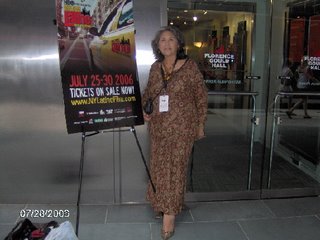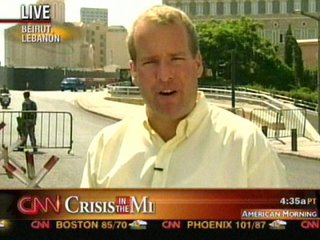Trouble in the Rio Grande
By MIKE McILVAIN
Disinfection processes at the water treatment plant are all that prevent Laredoans from drinking sewage each time they reach for a glass of water.
Gilbert Anaya, El Paso-based acting chief of the International Water and Boundary Commission environmental division, says his agency tests for any contaminants, but specifically for human fecal matter, looking closely for E. coli bacteria because those tests are more specific.
And certain places in the Rio Grande carry more of a health risk than others.
“If you were to swim in the river and ingest some water you could get some bacteria, depending on where you were swimming,” Anaya said by phone. “Overall the river is in good shape, but the bacteria is still at an elevated level.”
Anaya said the IWBC, cities of Laredo and Nuevo Laredo are trying to pinpoint those more dangerous parts of the river.
IWBC testers also look for heavy metal, various bacteria, organisms and examine fish tissue. Anaya says Laredo also runs its own tests, but City Hall declined to comment for this story.
Online, the Rochester, Minnesota-based Mayo Clinic says municipal water systems can fail.
“Although public water systems use chlorine, ultraviolet light or ozone to kill E. coli, some outbreaks have been linked to contaminated municipal water supplies,” Mayo said. “Most E. coli infections aren’t life-threatening, but the bacteria can cause serious and even fatal illness in some people. When it comes to more severe infections such as 0157:H7, however, no current treatments can cure the infection, relieve symptoms or prevent complications.”
The Texas Commission on Environmental Quality says the only local facility currently under agency enforcement is Laredo’s waste water treatment plant at Zacate Creek where 29 violations were reported between 2001 and this year.
“The violations, for the most part are minor and regional staff works with the plants, through monitoring strategies, to ensure compliance,” said Lorinda D. Gardner, Harlingen/Laredo TCEQ regional director.
TCEQ reports 20 violations in that period upriver from the Laughlin Air Force Base waste water treatment plant. Ten were reported for the United North Laredo waste water treatment plant and six were counted at Eagle Pass. Four each were noted at the Rio Brave water treatment plant and at the San Felipe Plant in Val Verde County.
Possible links between the aluminum salts used in water purification and Alzheimer’s disease remain unsettled, too.
The international water science Awwa Research Foundation, of Denver, has examined that issue several times.
“Aluminum (Al) is the third-most-common element in the earth's crust and is present in all natural waters. Moreover, Al salts are used extensively as coagulants in drinking water treatment. It is not surprising, then, that measurable Al is present in the distributed water of all drinking water utilities, irrespective of whether Al was used as a coagulant,” Awwa says online. “The possibility of an association between Al concentration in drinking water and the occurrence of Alzheimer's disease (AD) has long been a topic of research, discussion, and considerable debate.”
TCEQ tests between March 1, 1998 and Feb. 28, 2003 point to a 7-mile stretch downstream of International Bridge 2 to a pipeline crossing as the top fecal coliform test offender with 27 standard exceedences in 55 samples.
Fecal coliform standards were exceeded 17 times in that time frame in the nine miles between El Cenizo and the San Isidro pump station in 20 samples. In 24 samples, It was 13 in the 13-mile route from that pump station to a segment boundary. Nine exceedences in 39 samples were noted in the 4.2 miles from the Laredo Water Treatment Plant, downstream to International Bridge 2. Four exceedences in 18 samples were recorded in the five miles between the pipeline crossing and El Cenizo.
Ammonia Nitrogen is listed as a concern through 30 samples for 12 exceedences in that 7 miles from Bridge 2 to a pipeline crossing.
Cleaning up the Rio Grande could require some Rice – Condolezza Rice, head of the State Department, overseer of the 1944 Water Treaty with Mexico – but IWBC spokesperson Sally Spener, in El Paso, says it isn’t as simple as calling her up.
“There’s not a simple answer. It would depend on what the matter is,” she said.
Spener notes that the Environmental Protection Agency and its Border 2012 Program, the Border Environmental Cooperative Commission, North American Development Bank and Committee for Environmental Cooperation all have roles and jurisdiction in Rio Grande matters. Spener also points to the numerous state-to-state efforts between governments at that level on both sides.
But if an act of Congress would help, the more politicized border security issue could be another aid.
Laredo’s U.S. Congressman Henry Cuellar has acted as host to other Capitol Hill colleagues, exhibiting border issues through field trips here.
Cuellar might have indirectly helped to stoke the fires of action in the House toward gaining the State Department’s attention through a borderlands security and awareness tour he held for a handful of colleagues last month. John Doolittle (R-California) was one of the guests and serves as chairman of the Subcommittee on Water and Development and also works on an environmental committee.
Some of Doolittle’s committee work involves overseeing the Environmental Protection Agency.
“I would say you have got to get that river cleaned up,” Doolittle said, learning to his surprise that the Rio Grande is Laredo’s only source of drinking water. “It looks nice from afar, but I wasn’t right up on it.”
But it was the border security issue that got him to consider the Rio Grande’s plight – not the cries of environmentalists.
Doolittle noted that California laws would probably require an environmental impact study each time the Border Patrol cuts away riverside cane and grasses, but he has no problem with that in the effort to secure our borders.
Doolittle says that the Rio Grande won’t get any special attention simply because he has visited the waterway, but if it does cross his desk he will have a feel for it.
“I come from a border state, but haven’t seen much of the border,” Doolittle, of the Sacramento suburb of Roseville, said. “I have a new understanding of the border and its problems and issues.”
Cuellar helped funnel a Nadbank loan of $44.4 million for a water treatment in Nuevo Laredo, which includes a storm sewage network and plenty of that water will into the Rio Grande, but there’s still plenty of water flowing from upriver.
Cuellar also knows supply is a growing issue and feels we need to be open to almost any idea, which could include making Lake Casa Blanca a secondary drinking water source, or finding ways to recycle water as some other cities in the American Southwest do.
“We’ll be open to discussion. We have to plan now,” Cuellar said.
Planning now could help avoid legal battles with other cities and governmental entities.
“Who’s planning?” asks Laredo gastroenterologist Dr. Reynaldo Godines. “The medical community started looking at the water supply and quality 25 years ago.
“I’m more concerned with less water, more stool, pesticides and chemicals in the river.”
Godines notes a recent article in a United Nations magazine in which two rivers in North America are expected to dry up – the Colorado and Rio Grande.
“So, long-term planning for this is certainly what it’s all about. People always wait for a crisis.”
Godines says distribution is the issue as the river gets older with a growing population’s increased demand with a related rise in pollutants adding to the water, too.
“Half of the world’s population doesn’t have access to clean water,” he said. “Especially as global warming worsens, fresh rain is going to create more managing importance on civilization as we know it.”
Godines says Laredo needs to imagine how the city would be if the river dried up.
“The land is drying up. The desert is becoming a major part of our nation,” Godines said.
Upriver in El Paso flashes of that dry future have shown themselves more than once.
“That’s our bread and butter,” Spener said of the Rio Grande. “We have significant reduced water allotments. I’ve seen the river dry here in El Paso. Everyone is taking a bigger look at investing in water projects.”
City Hall is backing a water park project, despite infrastructure woes blamed on considerable water volume losses.
Numerous breaks in aging iron pipes are said to cost Laredo many gallons and plenty of revenue. City Utilities Director Carl Schwing told city council in the Sept. 18 meeting of an average of five breaks per day.
Schwing also said the wastewater plan has not been updated in years and the water plan is equally as bad.
“We’re looking at consulting firms to identify areas of major loss,” he said.
City Manager Larry Dovalina said the old iron ground pipes are replaced with PVC pipe.
Council approved the 2007-2011 Capital Improvement Program in the Sept. 18 meeting, which OKs getting $8.4 million in funding for wastewater woes next year. The South Wastewater Treatment Plant is scheduled to expand with a $7.5 million injection and $1.6 million is aimed at water projects.
More related readings online at: http://www.waterconserve.info/articles/reader.asp?linkid=53729; http://www.chinadaily.com.cn/english/doc/2006-03/18/content_544076.htm; http://www.oaoa.com/specialsections/riogrande/riogrande.htm; http://www.unep.org; http://www.awitness.org/journal; http://www.mayoclinic.com/health/e-coli/DG00005; http://www.ibwc.state.gov/; http://www.ibwc.state.gov/; http://www.epa.gov/.
Note: The print version of this story can be found in Laredo, Texas at various locations and it will become visible online at www.laredosnews.com.







